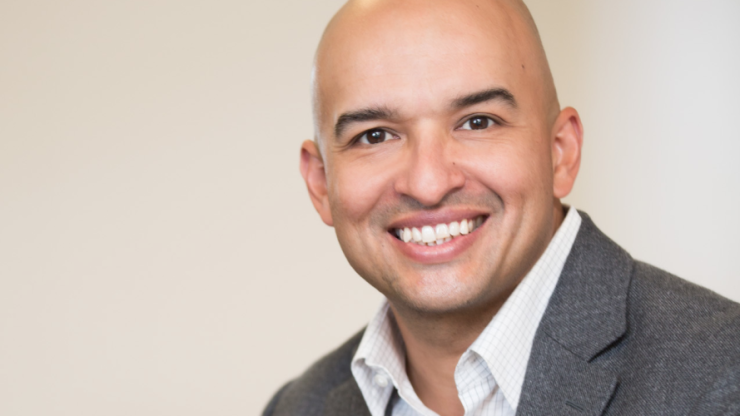The consumer lending fintech Oportun is continuing to tighten its credit standards, limit expenses and shift its focus to returning borrowers as the economic environment puts strain on the company's target customer base.
Oportun has been pumping the brakes on acquiring new customers and leaning on a new direct marketing program in efforts to hedge delinquency rates amid record-high inflation and unstable unemployment levels. The past several months, the community development financial institution has been laying the groundwork to offset negative effects of a potentially recessionary environment, CEO Raul Vazquez said on the third-quarter earnings call Monday evening.
"Starting in July, we initiated a set of actions, including significantly tightening our underwriting standards to address the impact of inflation on our members," Vazquez said. "I'm pleased to inform you that these actions are having their intended effect. We're continuing to reduce our exposure to new borrowers and increase our proportionate exposure to more profitable returning borrowers who have already successfully repaid at least one loan to Oportun."

Vazquez added that Oportun will also continue to expand its use of bank account data in loan underwriting decisions by giving more applicants the opportunity to share their data. Oportun is also rolling out a new direct marketing strategy through which it will target more creditworthy consumers in its direct mail campaigns. . As of Tuesday afternoon, Oportun's stock had risen 27.5% day over day to $5.29. The San Carlos, California, company's stock has fallen 74.4% year to date.
The fintech was founded in 2005 to provide loans to low- to moderate-income consumers with little to no credit history.
Oportun had $147 million in net revenue in the third quarter, up from $140 million a year earlier. The company aims to keep expenses flat in the second half of the year by reducing sales and marketing costs and limiting headcount growth.
"We're very committed to keeping expenses as flat as we can, even as we go into 2023," Vazquez said. "We recognize that over the last few years we made investments in headcount as we were building out our credit card product, as we were building out the secured personal loan product, and then certainly when we made the Digit acquisition. But we feel that the organization is rightsized today."
Last year, the company rapidly acquired new borrowers and expanded into 30 more states when it launched its partnership with Sioux Falls, South Dakota-based Pathward.
Oportun Chief Financial Officer Jonathan Coblentz said his company is expecting an 11.9% annualized net charge-off rate in the fourth quarter, primarily due to loans made to new borrowers prior to when it started tightening credit standards.
In the first quarter of this year, new borrowers represented 51% of Oportun's loans. When inflation began rising, the company intentionally brought that figure down to 44% in the second quarter. In the third quarter Oportun's new-borrower originations were only 28% of its loans.
Returning borrowers "are the most profitable and most proven part of the portfolio," Vazquez said. "So we think it makes sense to really focus on that borrower today."
Since the company began selectively adding new borrowers and focusing on returning customers, early-stage delinquencies, meaning payments being made one to seven days late, dropped to 3% in the third quarter from 3.3% in the second quarter. First-payment defaults hit below 1%, equivalent to pre-pandemic 2019 levels as the company focused on "quality, not quantity of loans."
Vazquez added that Oportun probably won't try to pick back up on new-borrower acquisition until inflation decreases, borrowers have more money left over after each paycheck and unemployment rates drop.
An analyst note from Keefe, Bruyette & Woods said that Oportun had "plusses and minuses" in the third quarter, but the company's efforts to mitigate macroeconomic challenges were positioning the fintech for stability in the long term.
A J.P. Morgan analyst note said the company's focus on an underserved consumer market with relatively more attractive interest rates compared with pawn and payday lenders differentiates it from traditional lenders. In the second quarter, Vazquez said
"The quarter reflected a continuation of Oportun's expansion of market share, although with positive delinquency trends showing the impact of tighter underwriting," a Jefferies analyst note said. "We believe Oportun will lean into growth when macro conditions stabilize and note the company's cost control has been strong. We continue to see Oportun well positioned for long term growth and believe shares are attractively valued."
Last December, the company acquired the San Francisco-based challenger bank Digit for about $213 million. Vazquez told American Banker at the time that
Oportun will begin testing its mobile application that brings together Digit's savings, banking and investing products and Oportun credit products onto a unified platform. The company has also been enhancing its lending-as-a-service capabilities, and is slated to launch its previously announced partnership with the buy now/ pay later platform Sezzle by the end of the year.





